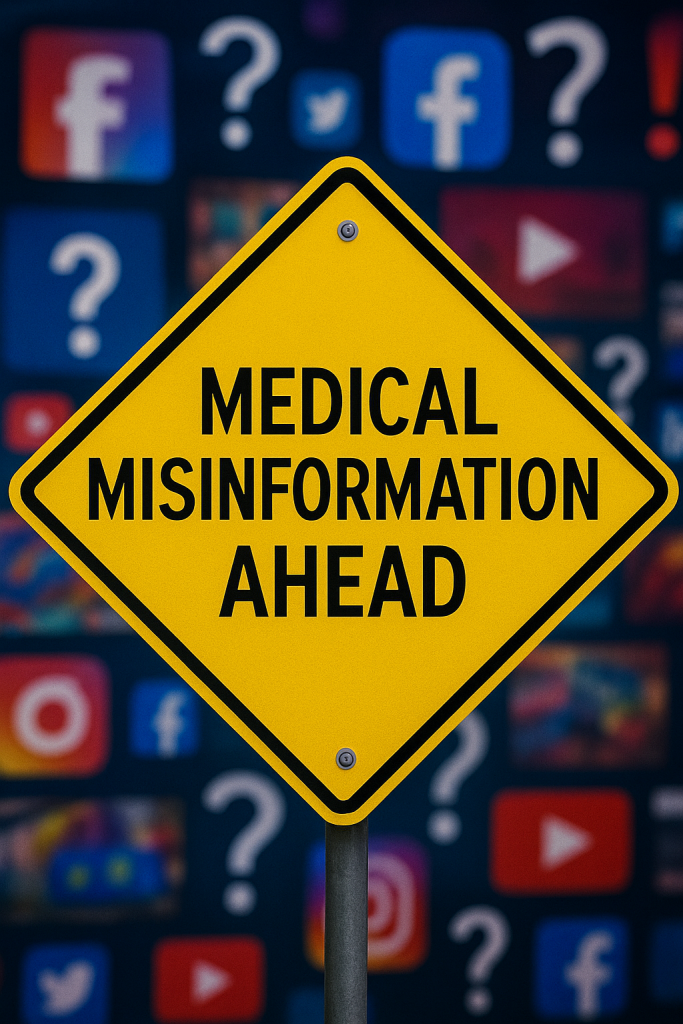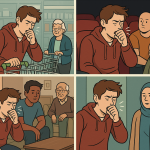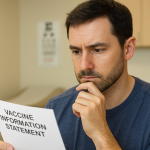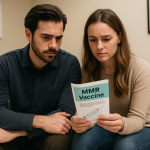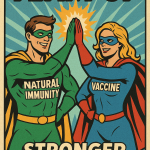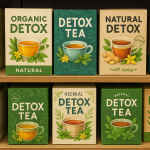If you’ve ever seen a video that made you wonder, “Wait… could that actually be true?”—this is for you.
It usually starts with a scroll.
A friend shares a video of someone in a lab coat saying vaccines are dangerous. A post claims a “natural remedy” Big Pharma doesn’t want you to know about. A mom’s group is buzzing about a chemical in cereal that “causes cancer in Europe.”
And suddenly, you’re wondering:
“Am I missing something? Should I be worried?”
If that’s ever been you—you’re not alone. And no, you’re not foolish or paranoid. In fact, that question means your instincts are working. Because you’re right to pause. You’re right to ask questions. But here’s the thing:
In a world full of health claims, not all questions are created equal.
Some are there to help you think.
Others are designed to make you doubt—so you’ll click, follow, share, or buy.
This guide will help you tell the difference.
🚨 Red Flags: Words That Should Make You Pause
Misinformation often sounds like a warning—but it follows a formula. Once you see it, you can’t unsee it:
- “Doctors won’t tell you this…”
- “They don’t want you to know…”
- “One simple cure Big Pharma is hiding…”
- “I did my own research and discovered…”
If it feels like it belongs in a conspiracy thriller, not a science journal—it probably does.
✋ Pro tip: When someone tries to scare you before they try to inform you, put your guard up.
🔍 Who’s Saying It—and Why?
It matters who is making the claim—and what they get out of it.
Ask yourself:
- Are they a qualified expert in the field they’re talking about?
- Do they cite real evidence, like peer-reviewed studies or expert consensus?
- Are they selling something—supplements, books, paid subscriptions?
- Do they thrive on fear, outrage, or mistrust?
If someone’s whole platform is built on saying “everyone else is lying to you,” that’s not courage—it’s a business model.
😱 Is It Tapping Into Emotion First?
Bad health advice doesn’t try to persuade your brain. It hijacks your feelings.
It makes you afraid to act. Or guilty for trusting the wrong people. Or righteous for being one of the few who “sees the truth.”
Sound familiar?
If a claim hits you in the gut before it makes sense in your head, pause. That emotional gut punch might be the bait.
🧠 What to Do When You’re Not Sure
Not everything online is black-and-white. If you’re stuck, use this 5-step gut-check:
✅ The Health Info Credibility Checklist
- Google the claim + “debunked”
- Check trusted sites: CDC, WHO, Mayo Clinic, Snopes
- Ask: Are multiple independent experts saying the same thing?
- Look for expert summaries, not just personal stories or testimonials
- When in doubt, don’t share
🫶 You Don’t Have to Be an Expert—Just a Good Filter
Here’s the truth no one tells you:
You don’t need to be a scientist to sniff out nonsense.
You just need the right tools—and a little practice.
So the next time a post makes you question everything you thought you knew, ask:
🧭 Who benefits if I believe this?
🧭 What are they hoping I’ll feel?
🧭 Where’s the actual evidence?
Being cautious isn’t weakness. It’s wisdom.
And when it comes to your health—and your family’s health—wisdom wins every time.
💬 If You Found This Helpful…
Share it.
Send it to the friend who’s been wondering.
Post it in the group chat where that weird TikTok is going around.
Because in a world of viral misinformation, truth needs a signal boost too.
Last Updated on June 27, 2025

